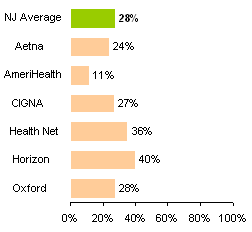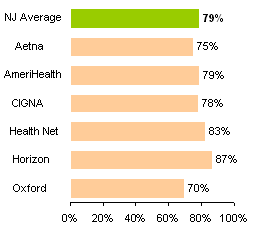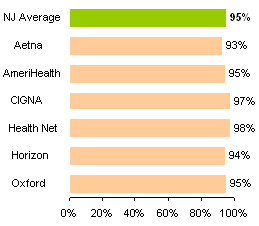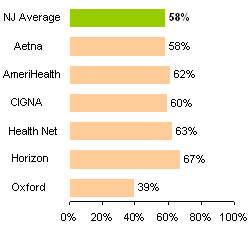| Home > Insurance Division > Life and Health > Life & Health Actuarial > HMO Performance Report | ||||||||||||||||||||||||||||||||||||
| 2007 New Jersey HMO Performance Report | ||||||||||||||||||||||||||||||||||||
| Getting Better/Living with Illness | ||||||||||||||||||||||||||||||||||||
|
Continued | |||||||||||||||||||||||||||||||||||
A comparison of each HMO’s performance to the New Jersey HMO average shows how effective the HMOs are in working with doctors to care for members who are sick or living with chronic illness. Higher than average scores mean better performance. |
||||||||||||||||||||||||||||||||||||
|
||||||||||||||||||||||||||||||||||||
Due to differences in sample size, HMOs with the same or similar scores can have different circle ratings. |
||||||||||||||||||||||||||||||||||||
|
||||||||||||||||||||||||||||||||||||
| OPRA is a state law that was enacted to give the public greater access to government records maintained by public agencies in New Jersey. | You will need to download the latest version of Adobe Acrobat Reader in order to correctly view and print PDF (Portable Document Format) files from this web site. | |||
| Copyright © 2011,
State of New Jersey New Jersey Department of Banking and Insurance |
||



